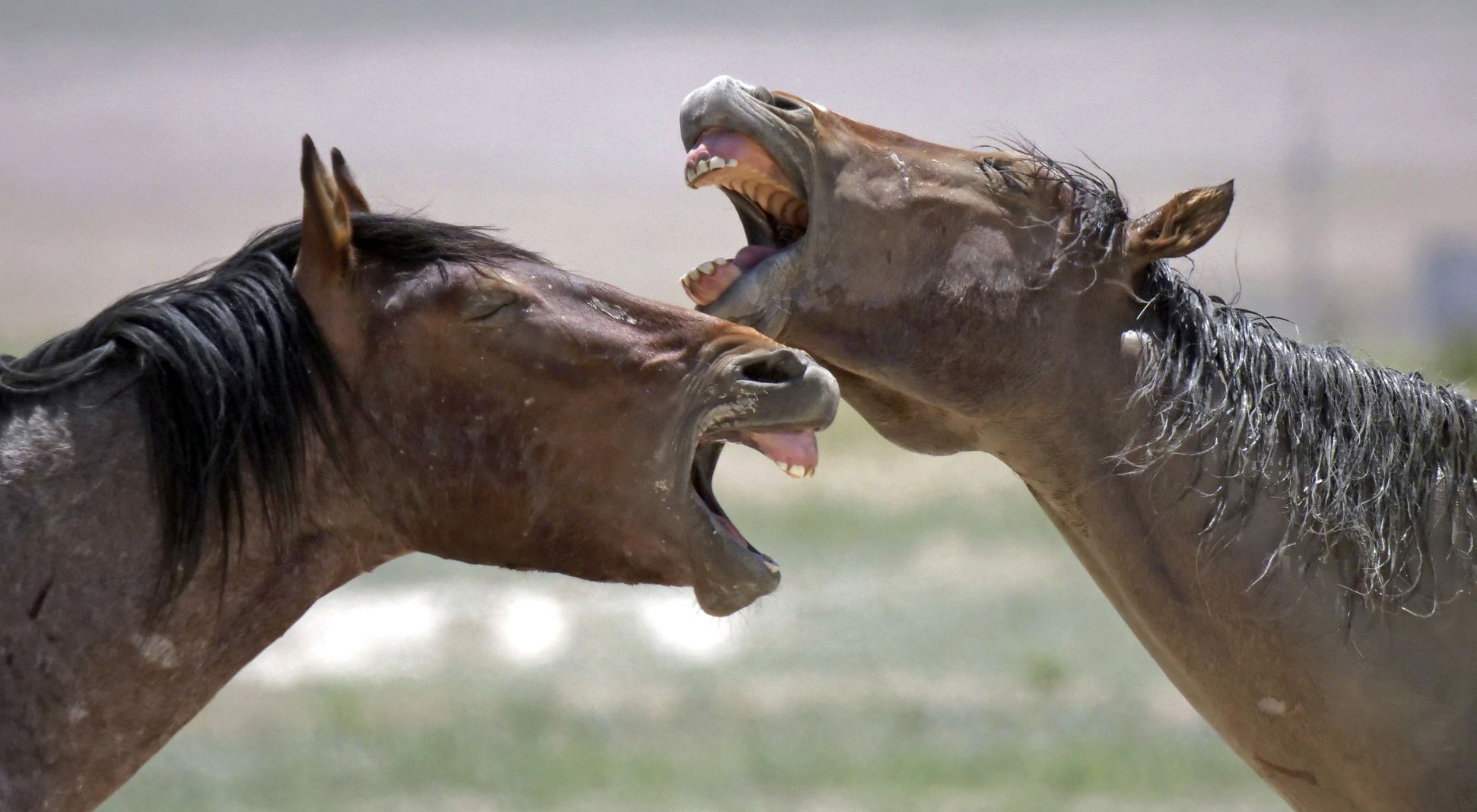10th Circuit upholds seizure of Park County horses

The federal appeals court based in Denver upheld the seizure of dozens of malnourished horses in Park County, finding that government officials had probable cause to suspect a violation of Colorado’s animal cruelty law.
After a lower court judge dismissed his lawsuit last year, Mark Walker turned to the U.S. Court of Appeals for the 10th Circuit and argued that he complied with the requests of Park County Sheriff’s Deputy Leigh Cochran to care for his horses in subzero temperatures, and that Cochran’s statements misled the judge who authorized the search warrant.
“A death of an old horse under extreme conditions is not unheard of, but this does not mean that there was reason to believe that the owner was criminally abusing the horses,” Walker’s attorney wrote to the appellate court.
But a three-judge panel for the 10th Circuit rejected Walker’s legal arguments, and deemed as irrelevant the information Walker claimed Cochran had omitted from her warrant application.
“Mr. Walker’s opinions are not facts Deputy Cochran was required to include in the affidavits,” wrote Judge Carolyn B. McHugh in the panel’s Feb. 23 order. Moreover, she added, “Mr. Walker’s own allegations reveal that a number of horses bred to withstand the cold were faring poorly” at the time of the seizure.
In January 2019, Walker had 78 horses in his care across three Park County ranches. The weather was harsh that month and Cochran, the animal control officer for the sheriff’s office, received complaints regarding thin or dead horses at one of Walker’s ranches. After finding a deceased horse, Cochran warned Walker that he needed to provide food, water and veterinary care for the animals.
In the following weeks, Cochran returned to Walker’s ranch with Bobbi Priestly, an agent with the Colorado Department of Agriculture and a manager with the Dumb Friends League Harmony Equine Center. Cochran drove through the fields with Walker and identified four skinny horses. She gave Walker suggestions for feeding the animals, and had a veterinarian assess a horse in poor health.
Priestly subsequently told Cochran that she did not believe Walker was providing adequate care, and the horses’ survival would be “unlikely” if he retained custody.
On Feb. 20, Cochran submitted an affidavit to the Park County Combined Court seeking authorization to search Walker’s ranches and seize the horses based on the assessment of a veterinarian.
“Walker did not comply with warnings and has given inconsistent statements on the number of deceased horses,” she wrote. “I stated to Walker the snow was too deep and the horses needed help.”
The following day, Cochran and Priestly began the process of taking Walker’s horses and moving them to the Harmony Equine Center. In total, officers seized 58 horses. Park County prosecutors charged Walker with animal cruelty, but he was found not guilty.
By the time of the verdict, all but five of his horses had been adopted, and Harmony did not return the remaining animals to Walker.
Walker filed a lawsuit against the sheriff’s office, the Harmony Equine Center, Cochran and Priestly, alleging an unconstitutional seizure, malicious prosecution and defamation. He argued it was unreasonable to seize his horses when the cruelty, “if any existed, was caused by an act of God, not by any failure of Mr. Walker’s.”
U.S. District Court Chief Judge Philip A. Brimmer dismissed the lawsuit in March 2021. He noted that Cochran’s application for the search warrant contained more than a dozen assertions that provided probable cause of animal cruelty from – Walker’s own acknowledgement that horses had died to Walker’s professed shock at how quickly the horses’ conditions had deteriorated.
“The affidavit paints a clear picture: the weather was harsh and plaintiff’s horses were in rough condition. Plaintiff failed to provide his horses the appropriate feed until several weeks after he was directed, and at least two horses, and possibly ten, had died,” Brimmer wrote.
On appeal, Walker argued that the defendants purposefully removed more horses than necessary, so that Walker could not afford to pay to retrieve all of them. He claimed that Cochran failed to explain in her affidavit that “a skinny horse is not the same as an abused horse,” and that Cochran should have known the weather would soon improve.
The 10th Circuit noted that Colorado’s animal cruelty law criminalizes a person’s failure to provide food, drink or protection from the weather, either knowingly or negligently.
Given the information Cochran provided, “an official could reasonably believe there was a fair probability that Mr. Walker had failed to provide his horses with proper nutrition and shelter,” McHugh concluded.
As for the allegedly-omitted information, McHugh added that Walker had not raised those points in the trial court, nor were the allegations necessarily relevant.
The case is Walker v. Park County Sheriff’s Office et al.













